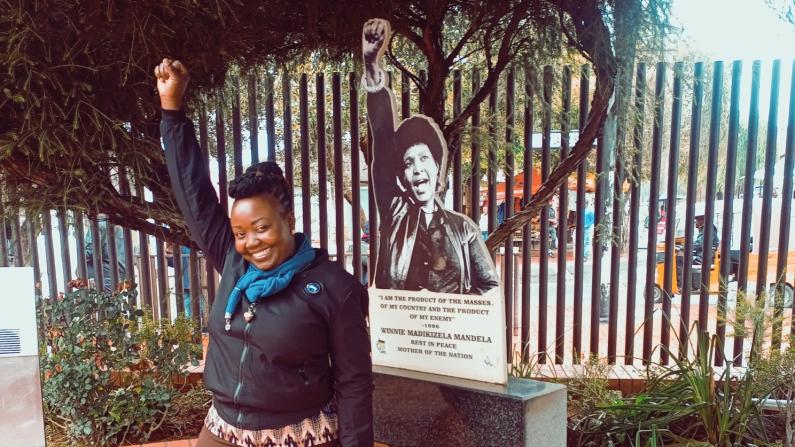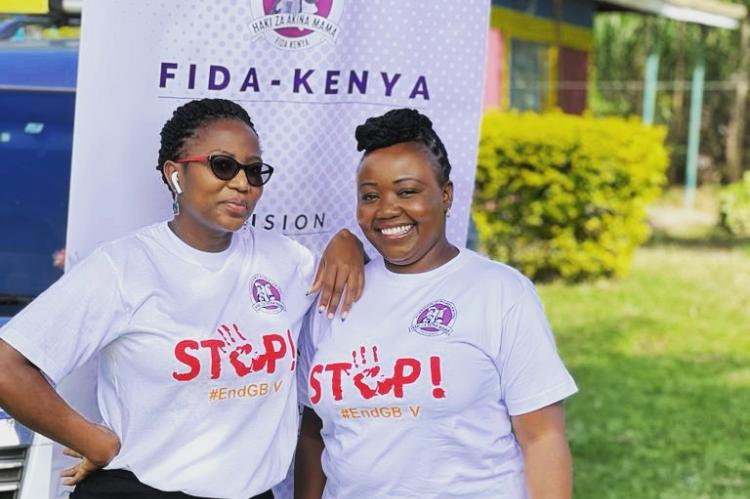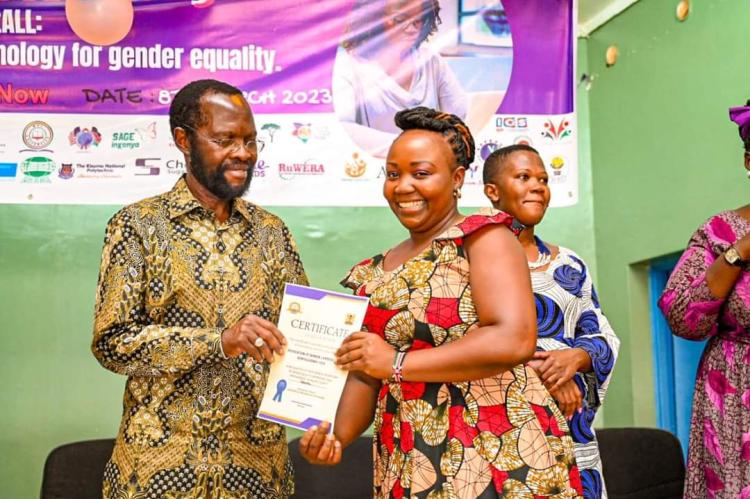
What exactly does your work look like at the “Federation of Women Lawyers”?
We are an organization that is in charge of promoting women´s rights and is against all sorts of discrimination. We represent the indigent women and support them to get legal help. Our focus is on topics as sexual and gender-based violence, land and property rights, family matters, children´s rights as well as marriage rights. Besides representing clients in court we also prepare some of them to defend themselves. I am also a trained mediator. That means I work a lot around peace and conflict as well.
Why did you start working in the field of human rights and peacebuilding?
I always really wanted to be a lawyer ever since I was a young child. I wanted to ensure that human rights are protected, fulfilled and respected. After I finished law school I interacted with the “Federation of women lawyers” and started working there. It became then very clear to me that I did not only wanted to engage for human rights in general – but especially for women´s rights. It is about control, about being able to make decisions around your own body, around everything that is important to you. We believe that there is no peace without justice. People really appreciate the assistance we give them: The are heard and seen. Regarding this the so-called alternative justice system also plays a central role.
What do you mean by that?
In Kenya there are the formal court processes but there are also many cases resolved by other means. So when we are talking about the alternative justice system we are talking about these other methods to solve conflicts. The alternative justice system recognizes the fact that conflicts can be solved in the most informal way by mediation and reconciliation. Because it is this informal and inexpensive it is very interesting for clients. It motivates me to see people transforming their attitudes.
Janet Anyango (on the right) and her colleagues engage for women´s rights and are against all forms of violence against women and girls.
In 2021 you participated in the ten week-long course on peace and conflict work conducted by the Academy for Conflict Transformation. What stayed in your mind?
The course was quite interesting for me because I was able to connect with colleagues from all over the world. I really appreciated getting to know the different conflict environments other participants were working in. I learnt to be very conflict-sensitive even as I do my own project work. Though we already work a lot with project implementation and evaluation in our day to day work we are still sometimes blind to certain things in our environment. The course showed me that some conflicts cannot be seen on the forefront. I also liked the idea that the absence of war does not necessarily mean there is peace – I have never really thought about it like this. Lastly, I also really changed my perspective on self-care. I used to think that when I am on leave I could then take time to clear my desk. Now I know that this time should consciously be spend away from work in order to reenergize.
Speaking about self-care you are confronted with many difficult topics. Your clients share their traumatizing experiences with you. How do you deal with that?
We have a psycho-social support program helping our clients. It is a lot easier for us to work with a client who is mentally stable. But unfortunately, most people still believe that mental health issues are a reason to be ashamed and consequently do not like to identify with it. I think it is crucial to be aware of it in order to get and accept help. We also designed ways in our team to check on our own self-care. We have regular staff debriefings. We always try to be there for the entire team. Therefore, communication is very important.
On the International Women's Day Janet Anyango received a certificate of recognition from the Kisumu County Governor for her contribution towards gender equality.
What gives you the strength to continue the work you are doing despite the challenges?
In Kenya we have very progressive laws. I have confidence in our justice system. Courts have the duty to promote the alternative justice system. That is very encouraging. But what makes my day is putting smiles on the faces of our clients. I do not think there is anything else that could get me that form of satisfaction. Someone feels supported because of our work, we are able to transform someone`s thinking. People then realize the importance of peacebuilding, mediation and reconciliation Having this kind of impact on someone`s life motivates me enormously.
What is your perspective on equality in Kenya?
The conversation around equality is a conversation about access to resources and opportunities. That is how we interpret equality at the “Federation of Women Lawyers”. And as I said we have clear laws against discrimination. Still, in Kenya we are really struggling with women in leadership positions because that is where we have not achieved a gender balance yet. We need to remove the structural barriers that inhibit the achievement of equality. It is work in progress. But we have already accomplished a lot. That is why every small step counts.

